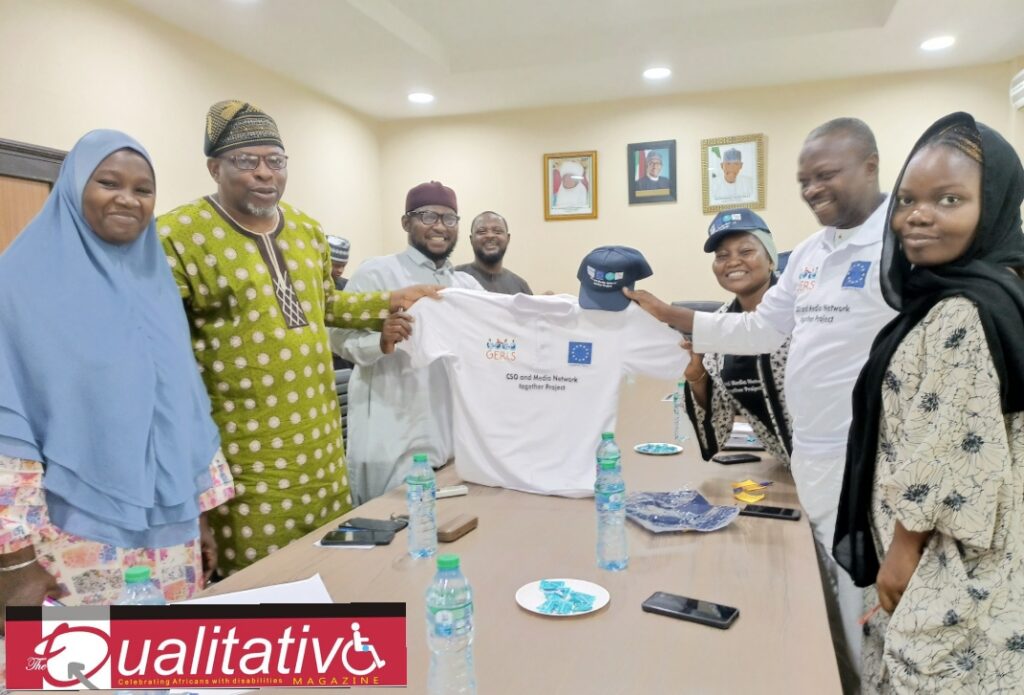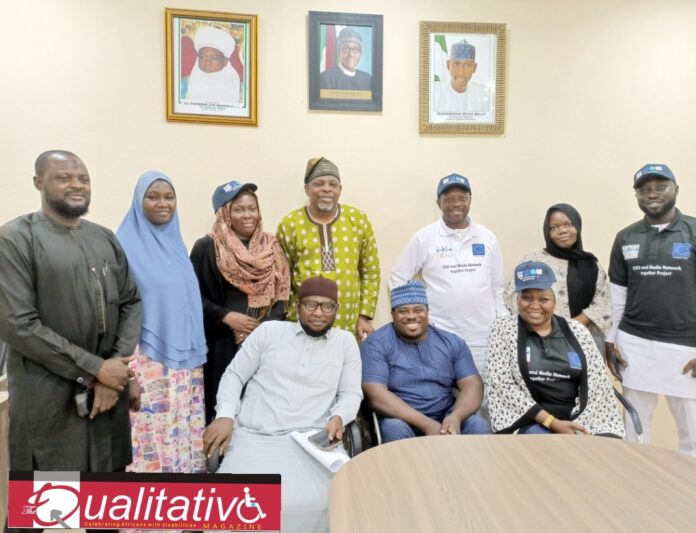A team of advocates have called on Islamic clerics to add their voices in promotion of the Sexual and Reproductive Health Rights (SRHR) of Women and Girls with Disabilities.
The group made this call during their advocacy visit to Nigeria Supreme Council For Islamic Affairs(NSCIA) in Abuja recently, as part of the activities of a microproject under the Global Exchange on Religion in Society (GERIS) project being funded by the European Union and implemented by Particip through Apolmida Haruna Tsammani of Haly Hope Foundation and Zubairu Babajide Atta of Media Advocates for Peace.
Apolmida Haruna Tsammani in her speech said that the essence of the project is to bring to the frontburner issues affecting women and girls with disabilities especially Sexual and Reproductive Health Rights. She informed that government has formulated National Policy on Sexual and Reproductive Health Rights of Persons with disabilities with emphasis on women and girls which if it is fully implemented, it will assure the rights of women with disabilities to health care services among others.
She pointed out the religious organization like NSCIA is key towards advocating for the implementation of this policy and other policies and laws meant to guarantee better living for persons with disabilities especially women with disabilities.
She also said that the visit is to seek partnership with the NSCIA in promoting the rights of women and girls with disabilities.

Zubairu Babajide Atta said that their intervention emanated from the challenges faced by women with disabilities during the COVID-19 era, where majority of them could not access opportunity.
He pointed out issue of access to physical structure as one of the challenges faced by persons with disabilities that have limited their opportunities and there is a need for these challenges to be brought to the front burner by the media, religious leaders and other critical stakeholders.
A member of the team, Agbo Chris Obiora said that the advocacy is also to draw attention of the organization towards the disability related policies and laws as well as people understanding that the barriers created by the society is what constituted disability and make life difficult for persons with disabilities. The public should also understand that when the barriers are removed, the lives of persons with disabilities would be better.
He also pointed the National Disability Act and the need for organizations to understand their roles towards implementation.
Barr. Harouna Eze, legal adviser of NSCIA alongside Mr Abdur- Rahman Balogun and Mr Ishaq Abdulganiyu of NSCIA, made commitments towards amplifying the rights of PWDs through the council.
They assured the group that they will any needed assistance and urged the group to come up with areas where they would like to partner with the council.
They also urged the group to also take the advocacy organization such as FCTA Development Control Department and COREN in the area of ensuring accessibility features in public building, it will aid the approval processes of these buildings seamless for Organisations who would be renovating/ modifying for PWDs.
They promised to take the message to all Islamic organizations to ensure that disability inclusion in all the all the mosques across the country including provide sign language interpretation in all the sermon within Islamic circle in Nigeria.
They read out some of their projects and programmes targeting persons with disabilities and urged the group reach out and partner with them in these programmes.


